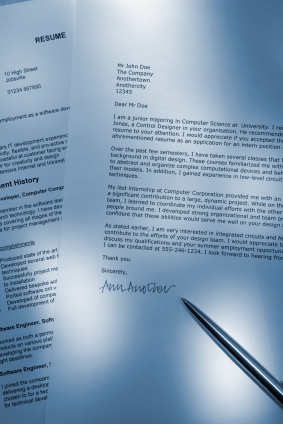
It can be difficult to find a job yourself. But, in today’s changing job market, throwing yourself on the fire and doing everything you can in order to find the right job is in your best interest, especially if you want to land the ideal job. Start by finding out what kind of experience and skills you have. Think about the skills that you have which best translate to finding a position that suits you, examine the knowledge you’ve gained and the paths you’ve taken.
Don’t forget about your life outside of work, what are some of the things that you enjoy doing? Perhaps there is an opportunity there that you have overlooked. Even some activities that may seem commonplace can set you apart from your peers in the eyes of a HR manager. For instance, starting your own sports league may show your commitment to organization and communication. So what are some practical job search advice tips?
Leadership
Not just the ability to lead but the ability to bring others together to collaborate on a project and get that project done in a timely manner. Managers want to see leadership qualities in new hires, that’s why they look for people with past experience managing people. If you have that experience, then all the better for you, but if you don’t you should definitely try to acquire some.
Initiative
Now is the time! That’s right, no more resting on your laurels, instead get yourself out there and start looking under every nook and cranny in order to find that job that you want. Don’t be passive in your job search, be proactive and call up HR managers or find out everything you can about your prospective company.
Problem Solving
Be a problem solver. Are you seeing nothing but shady door-to-door sales jobs? Then look somewhere else or just don’t go on those interviews. You know it’s not going to be what they say it is, so why are you wasting your time? Stop immediately and focus on the finding a solution to your problem.
Flexibility
Be flexible and wear as many hats as you can. Some people will tell you that it’s best to focus on one aspect of your career, but if you are multi-talented why not use that to your advantage? If you have multiple skills you should use them to find a job that suits you.
Commitment and Motivation
Be committed to your job search and stay motivated. Of course you will get down, who doesn’t, but that doesn’t mean that you have to let those feelings overwhelm you. Your job search may be on going but if you keep a positive attitude and work through the tough times, you will find something that you want.
Interpersonal Skills
Use that personality. Ask people at social events if they know of anything or ask your friends on Facebook. Don’t be afraid to ask about potential jobs. Sure it’s tough for a lot of people right now but there are still jobs available if you use your personality to find them.
The Necessity of Professional Cover Letters
BlogCover LettersJob SearchProfessional ResumesResume KeywordsResume WritingResumes
Many job seekers stress over cover letters more than they do their own resumes. It may surprise some, besides cover letters are typically a one-page preface to your intricately prepared resume. But, the truth is, that your resume may look dull without a good cover letter to introduce it. Cover letters introduce you to HR managers and set the tone for how your resume will be received. You can have a perfect resume, but if the cover letter is not well done, then your resume will not get the type of attention it deserves. Everyone looking for a job should have a professional cover letter and resume in order to find the career that’s right for them.
When you first enter the job market (most of us at around 21 years of age) don’t know how important cover letters are for you, much less how to write one that sells you. Many people are not aware of the benefits that a simple, well-crafted cover letter to a prospective employer can have. They introduce you to your prospective employer, but also they give a glimpse of your personality.
Just a few weeks into your job search, you will realize that a well-crafted cover letter is not an option, it’s a necessity. Through the support of a professional resume and cover letter writer, you can finally have the cover letter that sells your individual personality and traits. If you have a cover letter, it could always use another eye on it in order to see where you can make changes or additions. You want to sell yourself in your cover letter, your resume speaks to what type of experience and qualifications you have, that’s why it’s important to have a cover letter that sets you apart.
But, just having one is usually not enough. After a few weeks or months of unanswered applications and fruitless job searches, you begin to come to a final conclusion.
When you, or your cover letter writer, writes your first letter, the primary focus is on presentation and the format. How long should the cover letter be? Where to assign the date? What type of font is right for my cover letter? But, throughout you want to focus on one thing – quality content. If your cover letter is full of buzz words or just inane babble, then it’s not worth the paper it’s printed on.
It’s always important to remember, before you start writing, that content is king. It’s fairly easy to lose sight of what’s important and lose focus instead of paying attention to what’s important. That doesn’t mean that there are not guidelines to follow, but your cover letter writer can help you deal with the details. You do not want to have spelling or grammatical errors in your cover letter. That’s an instant turn off to any prospective employer. Remember that the main point of your cover letter is to get noticed and sell yourself.
Should You Call a Company After You Sent Your Resume?
BlogCareer & WorkplaceCover LettersExecutive ResumesJob SearchResume WritingResumes

You’ve been looking everywhere for, not just a job, but a career, you want to do something with yourself that enables you to pay your bills but also provides a purpose. But, that’s harder than you imagined in an economy that is only slowly making its way back.
There is no ‘one size fits all’ answer to this question, and there are numerous variables at play that can affect the outcome, and every employer is a little bit different. It seems like it’s impossible to know if you are wasting your time by following up on a resume you have sent, but maybe it’s the thing that will give you a leg up over the other candidates.
It really depends…
In general, it really does depend according to some experts. It depends on how you sent in your application, if you know or can find a contact person, and just how much you actually want the job – is it really worth all the effort you put in? Here are some suggestions that may help when deciding to follow up on a sent resume.
How did you send in your resume?
How did you get your resume to the prospective employer in the first place? Did you have a contact person or did you send it in through an online contact form, or did you send it through the company website job page? If you know someone in the company, you can get help with contacting HR or you can find someone from the company Facebook page and get in touch with them that way. You’re not being creepy, you’re being resourceful.
When should you follow up on your resume?
Some recruiters and placement agencies will advise you to submit a resume, and then follow up with a phone call or email. It can show ambition and enthusiasm, as well as set you apart from other candidates who do not bother to follow up. Employers will like that you are eager to get started and are interested in the position.
But, it is certainly appropriate to send a letter or an email a week or so after you submit your resume, especially if you have not heard anything from the company. Who knows, your resume may have fallen through the cracks and a phone call is just the thing that they need to know how interested you are. But, if you have done a follow up phone call or email after sending a resume, and you have not heard anything for a few weeks, it would be best to conserve your energy and not waste time on something that probably will not happen. There are other opportunities out there for you, so you just have to go and find them.
When you follow up make sure that you are polite. Polite messages reinforce your strong interest in the job, as well as showcasing your ability to handle important topics. Every day people get jobs because they stayed the course and fought for what they wanted, maybe today is your day.

**I am a member of the Career Collective, a group of resume writers and career coaches. Each month, all members discuss a certain topic. This month, we are talking about common job search misconceptions. Please follow our tweets on Twitter #careercollective. You can also view the other member’s interesting posts at the end of the article.
+++
Getting ready for an interview is often the most stressful part of the hiring process. Many job seekers do not take the time to properly prepare for an interview. This can lead to more than a bad answer to an interview question. Not taking the time to prepare can make you late, nervous and less likely to land the job.
Preparing for an interview is as simple as following a few common sense guidelines:
1. Where are you going: Be sure to do a dry run to the interview location. Whenever possible make the dry run during the same time of day as the scheduled interview, or make sure your GPS is working the day before you program it–just in case. This will allow you to easily locate the office without worrying about traffic or detours.
2. What are you bringing: Carefully review any guidelines set forth by the hiring manager. Bring extra copies of your resume, your portfolio (if applicable), a list of references and anything else requested. Prepare these items in advance to prevent forgetting items. It is also a good idea to keep clean copies of your resume in your car in case of an emergency.
3. What are you wearing: Try on each item that you will be wearing to the interview. Insure the clothing fits properly, is clean, pressed and damage free. Don’t forget to check socks and shoes.
4. Grooming: If your hair, mustache or beard needs trimming take care of it several days before the interview. Leaving this to the last minute can cause delays.
5. Phones: OFF! Consider yourself out of the running if your phone goes off during the interview… really out of it if your ring tone is “Baby Got Back”. Be smart and turn your phone off during your interview.
6. Questions: It is a mistake to assume that the only person asking question is the hiring manager. Instead, carefully craft a list of 2 to 5 questions to ask the interviewer. These questions should be thought provoking and demonstrate your knowledge of the company, its product or service and website.
7. Answers: Many interviews begin with the same questions: What do you hope to do? What are your goals? What is your greatest strength/weakness? Where do you see yourself in 5 years. Put some time and effort into thinking about these questions and prepare your answers in advance.
8. Eat, Sleep, Relax: Neglecting your health by failing to eat or sleep properly before your resume is a mistake. Try to put yourself in a relaxed state of mind. The more relaxed you are, the better the interview will go.
Other common sense suggestions include researching the hiring manager, contacting your references and bringing along a pen and paper for notes. Preparing for an interview doesn’t take much time, but it can have a big impact on your day.
++++
Read on for more great advice from Career Collective members. Don’t forget to follow our hashtag on Twitter #careercollective.
5 Misconceptions Entry-Level Job Seekers Make, @heatherhuhman
How “Interview Savvy” Are You?, @careersherpa
Employers Don’t “Care”, @ValueIntoWords
Misconceptions about Using Recruiters, @DebraWheatman
15 Myths and Misconceptions about Job-Hunting, @KatCareerGal
Are You Boring HR? @resumeservice
Job Search Misconceptions Put Right, @GayleHoward
Who Cares About What You Want in a Job? Only YOU!, @KCCareerCoach
How to get your resume read (sort of), @barbarasafani
The 4 secrets to an effective recruiter relationship, @LaurieBerenson
Job Interviews, Chronic Illness and 3 Big Ideas, @WorkWithIllness
The secret to effective job search, @Keppie_Careers
Superstars Need Not Apply, @WalterAkana
The Jobs Under the Mistletoe, @chandlee
8 Common Sense Interview Tips @erinkennedycprw
Still no job interview? @MartinBuckland @EliteResumes
Misconceptions about the Hiring Process: Your Online Identity is a Critical Part of Getting Hired, @expatcoachmegan
Better Check Your References Before the Employer Does
Career & WorkplaceExecutive ResumesInterviewingJob SearchProfessional ResumesResume WritingResumes
There has long been a debate regarding references and whether or not to include them in a resume. Many applicants are uncomfortable providing the information up front, preferring instead to simply state that references are available upon request.This is an outdated method and I always encourage clients NOT to write that on their resume, rather bring them with you to the interview. Whichever route you choose, it is critical you be aware of what information you are providing to potential employers as well as their ability to check that information. In other words, check your references because you never know who does.
References typically fall into two categories: personal and professional. Professional references are preferable as they give a potential employer the ability to confirm our work history. Personal references work well for those with little work history. The important thing to remember is that both types of references can be checked.
When offering references, be sure to carefully follow these three guidelines.
- Provide complete contact information: When providing a reference, be sure to provide complete contact information. This includes full names, addresses, phone numbers and email addresses (when possible). Also include employment dates, job titles and supervisor names. Failure to provide complete information gives the appearance of attempting to avoid the references being creference information for people who do not know they are being included in a reference list. It not only puts them on the spot but failure to call and receive approval can mean providing bad contact information or worse…a bad reference.
- Know what they are going to say: When asking permission to include a former supervisor or co-worker on your reference list, take the opportunity to ask what they will say. While this may seem awkward, ensuring a positive review or reference is the best way to control this portion of the application process.
- Lastly, some states or companies place restrictions on what information a former employer can provide. In many cases, they are allowed to only confirm employment dates and salary history. It is always a better idea to use a reference that can provide applicable information about your work history and ethics. Be sure to confirm that your references can provide additional information to potential employers.
Some say that not everyone checks references, but I think today with such easy access via internet and reference checking companies, most do. The point is, you don’t know. Because of this, it is critical that all reference information be accurate and positive.
References can be an excellent way to personalize your work history. Carefully select the people you would like to use as references and confirm with them what they will say so you are aware of the information that potential employers receive. By properly preparing them, being honest in your answers and the information you present, you have a much better chance of presenting the best possible ‘face’ to potential employers.

More and more of my clients are telling me that their first interview is a phone interview. Today, it is common to participate in a phone interview as a first step. Phone interviews are designed to weed out candidates who are not a good fit for the company, in spite of their qualifications. Taking the time to understand the phone interview process and following a few common sense tips can help make your phone interview successful. Remember, that in order to land the all-important in person interview, your first hurdle is the phone interview.
Phone interviews should be thought of as any other interview. This means preparing for a phone interview just as you would a ‘real’ interview. Researching the company to which you have applied, developing a list of thought provoking questions, being well rested and eating prior to the interview are all important steps–hint: don’t eat anything sugary before the interview or you might be likely to “crash” 20 minutes into your conversation–trust me on this one. You may even want your coffee handy as it will give you the boost you need, and keep you feeling and sounding alert. The phone interview is a unique opportunity to sell yourself using just your words. Be sure to have prepared responses to typical interview questions and be prepared to put your best ‘voice’ forward.
Just like an in-person interview has etiquette rules that must be followed, so does a phone interview. Being mindful of the etiquette of phone interviews is critical for successfully completing the stage of the interview process.
- Interview at home: This is the best way to ensure you have a quiet environment for the interview. Participating in a phone interview while driving, while at a restaurant or another noisy environment is a sure way to appear distracted and disinterested. Stay at home for your interview and make sure the house is peaceful. Stay in one spot to avoid sounding like you are walking or breathless. If sitting, sit straight up.
- Make adequate plans: Be sure to plan for the interview. If you have children, arrange for a caregiver during the interview process. Allow for adequate time before scheduling other interviews or appointments. Interruptions are in poor form so be sure to plan adequately in order to avoid them. Tell friends and family you will be interviewing at that time and NOT to call or stop by.
- Your voice matters: Because phone interviews are solely auditory, your voice matters. Be sure to focus not only on being articulate and intelligent but also on showing enthusiasm and excitement. As always, take your time when answering, but avoid sounding bored or slow.
- Be relevant: Interviews conducted over the phone have one major downfall for the applicant: it is easy to become complacent or to get off topic. Be sure to focus your answers on relevant information and experience. Avoid veering off topic or becoming too personal. Professionalism and relevance are critical for success.
- Smile. How many times have you talked to someone who was smiling on the other end of the phone? You can literally feel the smile. Smiling projects self-confidence and a cheery disposition.
If you prepare for a phone interview just like any other interview, the process becomes simplified. Being aware of what the interviewer is looking for, and tailoring your responses and answers to these needs is equally important.
 The current state of the economy and the job market has made it almost impossible to find a job. If you want to be one of the “chosen” to land an interview, you must be at the top of your game. No longer is it enough to simply appear at an interview dressed in a suit and armed with a positive attitude. Today’s candidates must be thoroughly prepared for each interview they attend. An important component of that preparation is knowing the ten things you should always bring with you to an interview.
The current state of the economy and the job market has made it almost impossible to find a job. If you want to be one of the “chosen” to land an interview, you must be at the top of your game. No longer is it enough to simply appear at an interview dressed in a suit and armed with a positive attitude. Today’s candidates must be thoroughly prepared for each interview they attend. An important component of that preparation is knowing the ten things you should always bring with you to an interview.
- Five copies of your resume – even if you have submitted your resume electronically, it is still important to bring along hard copies. In many cases, candidates will find themselves interviewed by multiple managers, so it is always important to have enough resumes to go around.
- Professional references – be sure to bring a list of 3-5 professional references. Include each reference’s contact information including email address as well as the capacity by which they know you.
- Personal references – more and more companies are turning to personal references to round out the interview process, so bring a list of personal references as well. Phone numbers, email address and relationship should be carefully noted for each reference.
- Work History – keep a list of your previous employers including physical address, phone number, employment dates and manager names. Being unable to provide this information is unprofessional and may raise an eyebrow or two.
- Education – bring a list of each school you attended, the address and the degree, or program studied.
- Skills – As technology continues to evolve, many potential employers are interested in what programs candidates have mastered. You should also include any specialized skills or equipment you can operate
- Questions – almost all hiring managers will end the interview by asking if the candidate has any questions – prepare a list in advance. It is a great idea to do this by carefully reviewing the company website. The questions should be thought provoking and relevant.
- Documentation – Bring along any professional certifications as well as a valid driver’s license and social security card. In the event that the position is immediately offered to you, you will have all of the information needed with you.
- Samples – Many jobs require a candidate to provide samples of their work. Be sure to bring along representations of your best work. This applies to almost all jobs. For example, an architect may bring along samples of their designs while a teacher might bring lesson plans or an example of a teaching plan.
- Attitude – never underestimate the power of your attitude – remember you are selling yourself, so it is crucial you come prepared to do just that. Be well rested and eat shortly before your interview.
Being adequately prepared for an interview is the first step towards has a successful session. Be sure to prepare your interview items in advance so you are not rushing around trying to locate everything right before your interview.
What Is Flex Time and Should You Ask For It?
Career & WorkplaceFamilyInterviewingJob SearchWork/Family Balance
The world is moving faster than ever. In fact, it often seems like everything about our lives is changing – sometimes on a daily basis. From online shopping to cellular phones that access the internet, technology has often driven the changes we see. Our work place is no different. Once it was expected that a 9 – 5 job was just that. Today employers have the ability to offer their staff a variety of work methods. Telecommuting is particularly popular. Less well known is the idea of flex time. While not as many employers offer flex time, those that do believe it allows their work staff to be more productive. Learning about work options should be an important part of every candidate’s research and decisions making process when looking for and interviewing for a new position.
I love the idea of flex time. When I was around 10, my mom went back to work. She was offered flex time. It went like this: she worked Monday, Tuesday and Wednesday morning, and Pat worked Wednesday afternoon, Thursday and Friday. It was perfect. They both worked hard those 2 1/2 days to make sure their work was done. Their bosses never once complained, in fact the opposite. You couldn’t find harder workers. It gave both women time with their children and families while earning a little extra income. Awesome. Why don’t more employers offer it? I decided to do a little more research on it to find out.
The idea of flex time isn’t that new. Employees are offered the ability to create a schedule that works for their particular needs. The employer typically publishes a set of guidelines and then works directly with an employee to pick a flexible schedule that will allow the necessary work to take place in a timely manner while still allow the employee to be flexible. This concept has worked particularly well for working mothers or employees with unique family obligations. For example, an employee with a school age child may wish to adjust their hours in order to be home when their child arrives back from school. They may request a flexible schedule of 6 am – 2 pm. The employee will still work a full 40 hour week but will have the ability to address the needs of their child.
Typically both the employer and the employee see flex time as beneficial. Employers tend to see a higher rate of productivity in their employees; after all happy employees are productive employees. Additionally, the absentee rate typically drops as employees schedule allows them to focus their work time on work and their off hour time on other pursuits, such as family. They also note that the ability to work during off peak hours often gives them quiet time that can be used to focus on larger projects without the worry of customers or coworkers bothering them.
Deciding to ask for flex time is very much a personal decision. Anybody considering the move should first determine if their company is even open to the idea. Try approaching your manager about your particular needs–it might be the next step in creating a flexible schedule. Whenever possible this discussion should take place during the hiring process to prevent conflicts.
Flex time can be an excellent tool to keep employees happy, healthy and productive. It can also help manage that all too often forgotten balance between home and work life. If you are interested in the idea of flexible scheduling, don’t be afraid to ask. A clearly presented explanation of your request and the ability to work within the guidelines of your company often go a long way.
